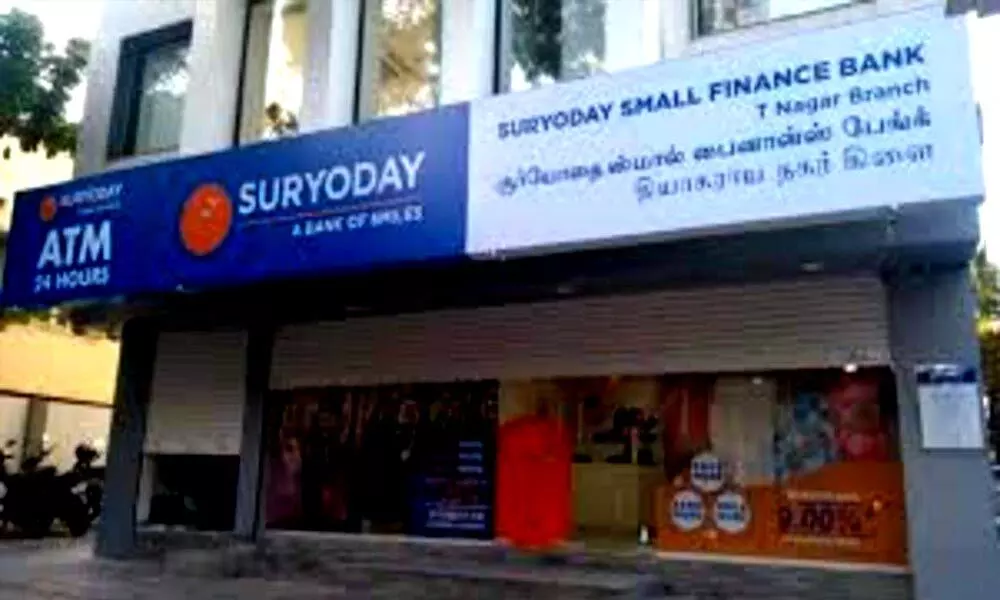Tread with caution; Buy stock post listing
SURYODAY Small Finance Bank Limited is tapping the capital markets with its fresh issue of 81.50 lakh shares and an offer for sale of 1.09 crore shares. The price band is Rs 303-305.
image for illustrative purpose

SURYODAY Small Finance Bank Limited is tapping the capital markets with its fresh issue of 81.50 lakh shares and an offer for sale of 1.09 crore shares. The price band is Rs 303-305. The issue opens on Wednesday the 17th of March and closes on Friday the 19th of March. The company is a small finance bank and started its journey from the microfinance business. Its current AUM (assets under management) is Rs 3,908 crore as of 31st December 2020
Just days before the present issue, the company completed a pre-IPO placement of 52.08 lakh shares to various entities at a price of Rs 291.75. This placement has been done to gauge the response and to the current IPO and also acts as a price discovery mechanism. As has been the case in previous issues, one would have expected this price of Rs 291.75 to be a part of the IPO price band. In the currently on-going issue from Laxmi Organics Limited who had done a pre-IPO of Rs 300 crore, the pre-IPO was done at the same price as the IPO. In Suryoday case, the merchant bankers allotted all the shares but a small amount of 60,000 shares to their associates. This effectively means short-changing the investors, particularly the retail investors. The discount given was Rs 13.25 per share and the size of the fresh issue was reduced proportionately.
Further the company has allotted 19.23 lakh shares in May 2020 to the selling shareholders at Rs 260. This sends wrong signals to prospective investors even though the selling shareholder has many more shares than what he has acquired and the new shares acquired are not being sold.
The company is present in 11 States and 2 Union Territories with the largest exposure being in Maharashtra and Tamil Nadu, with over 55 per cent exposure of the AUM. The company had reported an EPS of Rs 13.30 on a diluted basis for the year ended March 2020. The PE for the company at this EPS is 22.78-22.93 times. More expensive than most of the peers. The period April-December 2020 has been tough for this sector and almost all companies have faced rough weather with Suryoday being no exception. The NAV as on 31st March 2020 was Rs 123.13 which makes the price to book based on these numbers fairly high at 2.48 when compared with peers. Secondly the size of the bank currently is quite small when compared with peers which makes like to like comparison difficult. While small is beautiful, in business size matters and investors like companies which have size because they are more sustainable in the long term. The company is suffering from stress on its loans and has provided for a proforma GNPA of 9.3 per cent. This is certainly a high number.
The business of a small finance bank would do well but as mentioned earlier the bank has to reach a critical mass first. Currently it has about 14.4 lakh customers. It is present in the microfinance, affordable home loan segment and commercial vehicles segment. SFBs because of their nature deal with the informal side of customers and many of the loans are unsecured. While these loans earn a higher rate of interest, they are also subject to higher risk. With the growing demand of loans and a well-managed credit bureau available to monitor loans and their history, this sector is likely to do well. When compared with its peers as mentioned in the red herring prospectus (RHP), there are some advantages and several disadvantages that Suryoday has. It would be in the interest of investors to look at the company post listing.
(The author is the founder of Kejriwal Research and Investment Services, an advisory firm)

